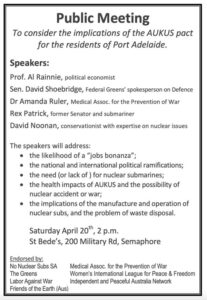Adelaide is losing 75,000 trees a year
One of the best ways to keep our cool is to maintain leafy streets, parks and backyards. But in some cities, trees are being chopped down faster than local councils can replace them. Some councils are also fast running out of land to plant trees.
Most of the damage happens on private land. Usually it’s a result of large blocks being subdivided or undeveloped land being opened up for more homes.
Cutting down trees for urban development is well within the law. But tree-protection laws are weaker in some parts of Australia than in others. To ensure our cities remain liveable, some laws will have to change.
…
Beyond just providing shade, trees reflect heat into the atmosphere. They also cool the air by releasing water through pores in their leaves, acting like evaporative air conditioners.
Trees provide many other benefits such as removing pollutants, limiting erosion and improving public health.
The influential 3-30-300 rule for green cities, proposed by Dutch researcher Cecil Konijnendijk, states:
-
you should be able to easily see three trees from the window of your house or workplace
-
cities should have at least 30% overall tree cover
-
you should have a green space with trees within 300 metres (or a three-minute walk) of your house or workplace
Our team at the University of Adelaide produced a 2022 report on tree-protection laws across Australia. The state government commissioned us to verify a claim that South Australia’s tree-protection laws were the weakest in the nation. We compared state and local council regulations, and the claim turned out to be true.
— from the Conversation: “Adelaide is losing 75,000 trees a year. Tree-removal laws must be tightened if we want our cities to be liveable and green”, by &

